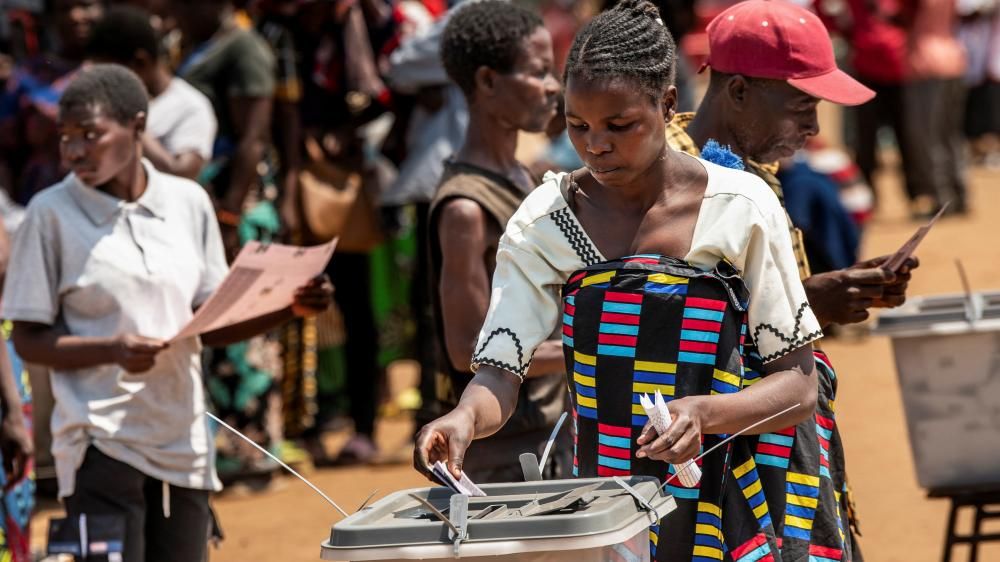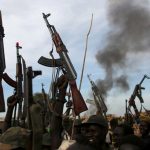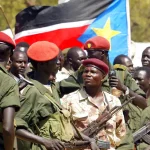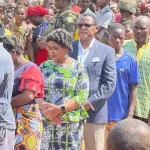As Malawi prepares for a pivotal election, the stakes have never been higher for a nation struggling under the weight of economic hardship. Citizens face rising living costs, a weakening currency, persistent food shortages, and a political class that many feel has failed to deliver on promises of prosperity. For ordinary Malawians, the upcoming election is more than just a contest of political parties—it is a referendum on survival, stability, and the future of democracy in a nation often hailed as the “Warm Heart of Africa” but now enduring one of its most testing times in decades.
- The Political Landscape in Malawi Today
- The Economic Struggles Driving Voter Anger
- The Impact on Everyday Life
- Government Promises and Public Skepticism
- The Role of International Partners
- The Youth Factor in Malawi’s Elections
- The Stakes for Democracy in Malawi
- The Role of Civil Society and Media
- Potential Election Scenarios
- Expert Opinions on the Road Ahead
- What Malawians Expect From the Next Government
- FAQs
- What is driving the high cost of living in Malawi?
- How are Malawians coping with rising prices?
- What role will youth play in the upcoming elections?
- How does the international community influence Malawi’s elections?
- What do Malawians want from the next government?
- Conclusion
The Political Landscape in Malawi Today
Malawi’s political system is multiparty, and elections typically draw intense interest both domestically and internationally. The ruling party, opposition alliances, and emerging third forces are all battling for legitimacy in a country where trust in leadership has eroded. Past elections have been marred by allegations of fraud, corruption, and judicial intervention, making the upcoming polls particularly crucial for consolidating democratic governance.
The 2020 rerun presidential election, for example, was hailed as a triumph for democracy after the courts annulled fraudulent results and ordered a fresh vote. That moment gave Malawians renewed hope in their institutions. Yet, four years later, frustrations remain high as many of the promised reforms have failed to materialize. This history sets the backdrop for another fiercely contested race in which citizens will weigh not only political promises but also tangible realities of their daily struggles.
The Economic Struggles Driving Voter Anger
At the heart of Malawi’s political crisis is its battered economy. Inflation has surged, with food prices climbing at alarming rates. The Malawian kwacha has weakened significantly against major currencies, further squeezing households that rely on imported goods. According to the National Statistical Office, inflation has remained in double digits for much of the past two years, with food inflation especially punishing to the poor.
The rising cost of maize—a staple food for most Malawians—has been emblematic of the crisis. A 50-kilogram bag of maize now costs more than many households can afford, forcing families to reduce meals or rely on food aid. Experts warn that this situation is unsustainable. Dr. Henry Chinsinga, a political analyst at the University of Malawi, notes that “economic hardship is not just a backdrop to the elections, it is the central issue. Whoever convinces Malawians that they can restore purchasing power and food security will have the upper hand.”
The Impact on Everyday Life
For ordinary Malawians, the soaring cost of living is not an abstract policy problem—it is a daily struggle. Stories abound of families selling assets to pay for food, children dropping out of school due to unaffordable fees, and small businesses shutting down as customers vanish. Transportation costs have skyrocketed due to rising fuel prices, further feeding into higher food costs as goods become more expensive to transport.
A vendor in Lilongwe, for example, shared how her profit margins have been squeezed to nearly nothing. “I used to sell tomatoes and onions and make enough for my family. Now, I spend almost everything on stock, and my customers complain that prices are too high. We are all suffering,” she said. This narrative resonates across Malawi, where resilience is being tested by economic forces beyond the control of the average citizen.
Government Promises and Public Skepticism
The government has responded to the crisis with pledges of reforms, subsidies, and foreign aid negotiations. President Lazarus Chakwera has insisted that structural reforms and international partnerships will eventually stabilize the economy. However, many Malawians remain skeptical, citing years of unmet promises and widespread corruption scandals that have undermined trust.
The “Cashgate” scandal of the past still looms large in collective memory, and more recent allegations of mismanagement have further eroded confidence. Voters are increasingly demanding accountability, transparency, and results rather than rhetoric. The question many are asking is whether the current leadership has the capacity and credibility to deliver meaningful change.
The Role of International Partners
Malawi’s economic struggles have drawn attention from international institutions such as the International Monetary Fund (IMF) and the World Bank. Financial aid and debt relief packages have been negotiated, but these often come with conditions that require austerity measures, which can be unpopular among citizens already grappling with hardship.
Neighboring countries and regional bodies are also watching closely. Stability in Malawi is crucial for southern Africa, where cross-border trade and migration are vital. Any prolonged political instability could ripple across the region, affecting not just Malawi but its neighbors as well.
The Youth Factor in Malawi’s Elections
One of the most significant dynamics shaping Malawi’s electoral future is the role of its youth. With over half the population under 25, young people represent a powerful voting bloc. Many are unemployed or underemployed, frustrated with systemic corruption, and eager for leaders who can deliver jobs and opportunities.
Social media platforms like Facebook and WhatsApp have become critical spaces for political discourse, with youth voices shaping narratives, organizing rallies, and holding politicians accountable. This demographic could tip the scales in the upcoming election if mobilized effectively. Analysts argue that candidates who fail to address youth unemployment and aspirations risk losing a decisive portion of the electorate.
The Stakes for Democracy in Malawi
Beyond economics, the election is also a test for Malawi’s democratic resilience. Free and fair elections are the foundation of democratic governance, and Malawians have historically shown remarkable commitment to this principle. However, the risk of voter apathy is real if citizens believe that their votes will not translate into real change.
International observers are expected to monitor the elections closely, emphasizing transparency, fairness, and peaceful conduct. Malawi’s credibility as a democratic nation depends on its ability to conduct elections that reflect the true will of the people without intimidation, manipulation, or violence.
The Role of Civil Society and Media
Civil society organizations and the independent media have played vital roles in amplifying citizen concerns and holding politicians to account. Investigative journalists have exposed corruption scandals, while advocacy groups have mobilized communities around issues such as food security, healthcare, and education.
In many ways, these institutions are the bridge between citizens and the political elite, ensuring that critical issues do not get lost in campaign rhetoric. As elections approach, their role will only grow in importance, serving as watchdogs for democracy and amplifiers of the people’s voices.
Potential Election Scenarios
The election could result in several possible scenarios. A clear majority victory could provide a mandate for decisive reforms, while a fragmented result might produce coalition negotiations that could delay policy implementation. The worst-case scenario would be disputed results, which could trigger protests, instability, or even violence.
Malawians are all too familiar with such risks, having witnessed disputed elections in the past. The hope is that lessons learned from history will guide the country toward a peaceful, credible process that strengthens rather than weakens national unity.
Expert Opinions on the Road Ahead
Political experts stress that Malawi’s challenges are deeply structural and will not be solved overnight. Professor Blessings Chinsinga points out that “Malawi’s economy has long been vulnerable due to over-reliance on agriculture, susceptibility to climate shocks, and weak industrialization. Elections can change leadership, but the deeper question is whether that leadership will commit to long-term structural reforms.”
Economists emphasize the need for diversification, improved governance, and investment in education and innovation as keys to building resilience. Without these, Malawi risks being stuck in a cycle of electoral promises followed by disappointment.
What Malawians Expect From the Next Government
Citizens’ expectations are clear: affordable food, access to jobs, better healthcare, improved infrastructure, and an end to corruption. Many Malawians are less concerned with party loyalty than with practical results that improve their daily lives.
A farmer in Mzimba summed up the mood succinctly: “We don’t eat politics. We eat food. Whoever will help us afford food, send our children to school, and give us opportunities—that is who we will vote for.” This sentiment captures the essence of the stakes in the upcoming election.
FAQs
What is driving the high cost of living in Malawi?
The high cost of living in Malawi is driven by inflation, currency depreciation, rising food and fuel prices, and limited income opportunities. External shocks such as global fuel hikes and climate-related disruptions to agriculture have compounded the crisis.
How are Malawians coping with rising prices?
Many households are reducing the number of daily meals, relying on cheaper substitutes, selling personal assets, or seeking assistance from NGOs and aid agencies. Small businesses have also been hit hard, with some closing due to declining purchasing power among consumers.
What role will youth play in the upcoming elections?
Youth will play a decisive role as they make up the largest share of the population. Their frustrations with unemployment and corruption mean they could swing the election if mobilized. Social media activism has further amplified their influence in shaping political debates.
How does the international community influence Malawi’s elections?
The international community influences Malawi through aid, development programs, and election monitoring. Donors often pressure the government to maintain transparency and accountability, while financial institutions like the IMF impose conditions tied to economic assistance.
What do Malawians want from the next government?
Malawians want affordable food, stable jobs, better healthcare, quality education, and honest governance. Above all, they want leaders who can deliver tangible improvements to their lives rather than empty promises.
Conclusion
Malawi’s upcoming elections represent a watershed moment for a country at a crossroads. With soaring living costs dominating national conversations, voters will weigh not only political ideologies but also practical solutions to their economic pain. The choice Malawians make will reverberate far beyond their borders, signaling either resilience in the face of adversity or further struggles under weakened leadership. What remains clear is that the people of Malawi demand change that is real, measurable, and lasting. Their ballots will carry the hopes of a nation seeking not just democracy in name but democracy that delivers.







